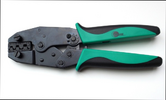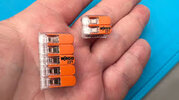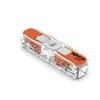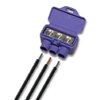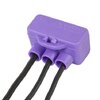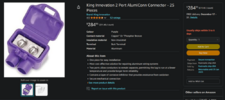I got this one Phil. The cheap green one. They can get real expensive. Seems to work ok on those open barrel terminals.So the next question - name/number/picture/source of 'proper' crimping tool?
Open Barrel Crimp tools
We have Open barrel Terminal crimp tools,and Terminal Extration Removal tools for open barrel wiring terminals like, Molex, Amp, Yazaki, Sumitomo, JAE, and Harley Davidson - Deutsch terminals. I also have some tips for those that may want to solder certain terminal crimps. Open Barrel Terminal...
